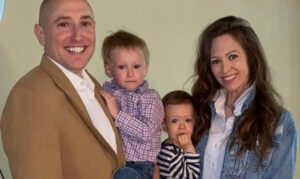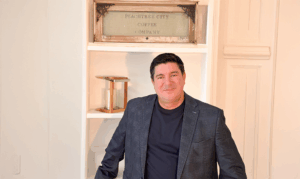Political pundits seemed to be oh so surprised about the Trump and Sanders campaigns and the enthusiasm of their supporters. And, they continue to be astounded at the election of Donald Trump.
Well, I cannot say the same. Before the election, I stated repeatedly that there was a very good chance that Trump would be President. Here is my analysis of where voters were at before this election.
Back in 2013, I wrote a dialogue piece for the New York Times which explained why citizens do not trust their government. The Sanders-Trump campaign phenomena were simply an expression of that mistrust by a growing segment of our citizenry.
Per Gallup (2016), before the election, only 52 percent of Americans said that they are “extremely proud” to be an American, a drop of 18 percent since 2003 and a new low. Furthermore, only 34 percent of Americans are even satisfied with our form of government, a tragic fact.
In that 2013 NYT piece, I mentioned Wall Street and the lack of will on the part of both parties to bring to justice those who nearly caused the second great depression. And, there still seems to be no inclination on the part of Congress to bring back an updated and stronger version of the Glass-Steagall Act, which died thanks to the bipartisan efforts of Newt Gingrich and Bill Clinton. (In fact, the GOP Congress is now moving to gut the weak Frank-Dodd legislation which at least attempts to control Wall Street abuses.)
According to a book by Bart Naylor of Public Citizen, an advocacy group:
“Americans suffered from the financial crisis of 2008. Adding insult to injury, Americans were compelled to finance bailouts of banks responsible for the crash on the theory that permitting any to fail would cause a cascade of bankruptcies and inflict cataclysmic damage to the economy. Yet today, the largest banks are even bigger than they were then.” Under the Obama administration, only one person went to jail and, unfortunately, there are now no convictions on the horizon.
Meanwhile, the 1 percent has been getting much richer (Saez, 2015) while the income of the middle class is stagnant and has been for decades regardless of who controls Congress. Factories were closing for decades. Hard hats were either out of work or working for peanuts at McDonalds.
We had progressive voices (such as Sanders and Senator Warren, a brilliant policy wonk), but calls for true comprehensive economic reform were unheeded by Obama, Clinton and the leadership of the Democratic Party … much less the GOP, with the notable exception of Trump’s fiery rhetoric (which has not been translated into constructive action in his first 100 days).
Prior to the election, the Middle East remained a quagmire, with our troops still in Afghanistan and Iraq. Obama’s plans to get us refocused on China and the Far East were stalled because of ISIS and terrorism.
Every day we heard of new attacks in places like Bangladesh and Turkey, with the American public wondering when the next 9-11 will take place here. And, the majority of working-class Americans could not understand why Islamic terrorism was not clearly identified as such by our intellectual, highly rational President who had unsuccessfully tried to explain his heavily nuanced position to voters.
The Affordable Care Act, despite covering 20 million more Americans, was unpopular. Obamacare was and remains a piecemeal and over-complicated political mess, as well as a poor policy choice.
The GOP was believed when it said that it would be replaced by something much better. (Although the ACA is a much better option than the current GOP alternative, which is even more unpopular and would cause 24 million to lose insurance, see below).
In fact, according to a 2016 Gallup survey, 58 percent of Americans wanted it repealed in favor of a national health program which would cover everyone. Bernie advocated this (Medicare for All), but not the Brahmans of his party.
This health reform development seemed to create a real opening for the GOP to take the lead. But they have dropped the ball, as usual.
In his 2016 policy pronouncements, Speaker Ryan simply rehashed and renamed the worn-out old piecemeal ideas: giving Medicaid block grants to states; privatizing Medicare; selling insurance over state lines and so forth. These ideas became the foundation for the current disaster known as Trumpcare. No wonder Congress’ disapproval rate remains amazingly high (85 percent in 2013 and 80 percent now).
Many educated moderates disagreed with Trump’s misogynist and “nativist” pronouncements and actions. However, he has struck a chord with a large segment of the American people.
It was very calculated that Trump named Clinton “crooked Hillary.” Prior to the election, a Democratic pundit (Peter Hart) stated it best. To paraphrase Hart, in focus groups of likely voters, it is not one thing, it is a series of things over decades that has caused “liar” to be the one word most associated with Hillary Clinton.
Gallup (7-16) found much the same. The most stated reaction to Hillary: “dishonest.” On the other hand, Trump was just as bad: “Dislike” and “Idiot” were the most stated reactions to him. Trump voters just liked him more than Hillary, and they happened to be in the right states to win the Electoral College.
Which leaves us where? The only real change since I wrote my 2013 piece is that the political establishment has made so many mistakes over the last few years that the American people are even more alienated now than they were then. So we ended up with an unqualified buffoon for President. And the beat goes on.
Jack Bernard
Peachtree City, Ga.









Leave a Comment
You must be logged in to post a comment.